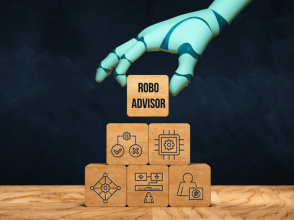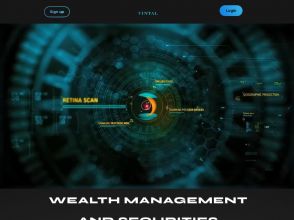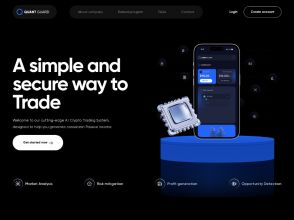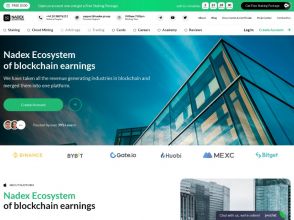
The role of online investment education - tips on financial knowledge;
 In an era marked by rapid technological advancements and an evolving global economy, individuals are increasingly recognizing the importance of financial literacy and investment education.
In an era marked by rapid technological advancements and an evolving global economy, individuals are increasingly recognizing the importance of financial literacy and investment education. The ability to make informed decisions about investments is crucial for achieving financial goals and securing a stable future.
Fortunately, the rise of online investment education has provided a wealth of resources to empower individuals with the knowledge needed to navigate the complex world of finance.
The role of online investment education: resources for building financial knowledge
I. The Need for Financial Literacy
Understanding the fundamentals of finance and investment is more than a personal empowerment tool; it is a necessity in today's dynamic economic landscape.
Many individuals, despite having access to financial products and markets, lack the knowledge required to make sound investment decisions. Online investment education plays a pivotal role in bridging this knowledge gap, empowering individuals to take control of their financial destinies.
II. The Benefits of Online Investment Education
1. Accessibility and Convenience:
Online investment education offers the convenience of learning at one's own pace and from the comfort of one's home. Whether you are a busy professional or a student, these resources provide flexibility in scheduling your learning sessions.
2. Diverse Learning Formats:
From articles and e-books to webinars and online courses, there is a wide array of formats through which individuals can consume investment education content. This diversity allows learners to choose the format that best suits their learning preferences.
3. Expert Insights:
Online platforms often feature expert insights from seasoned investors and financial professionals. These insights provide practical knowledge and real-world perspectives, giving learners a well-rounded understanding of the financial markets.
III. Key Online Investment Education Resources
1. Educational Websites and Platforms:
Websites such as Investopedia, Morningstar, and Khan Academy offer comprehensive guides, tutorials, and courses covering various aspects of finance and investment. These platforms cater to both beginners and experienced investors, providing valuable information at every level.
2. Online Courses and Webinars:
Platforms like Coursera, Udemy, and LinkedIn Learning host a plethora of courses and webinars on investment strategies, portfolio management, and financial planning. These courses are often developed by industry experts, ensuring the quality and relevance of the content.
3. Financial News Outlets:
Keeping abreast of financial news is crucial for making informed investment decisions. Platforms like Bloomberg, CNBC, and Financial Times provide up-to-date market analyses, economic trends, and expert commentary, offering valuable insights to investors.
IV. Building a Solid Foundation
1. Start with Basics:
Begin your investment education journey by understanding the basics of finance, such as concepts of compounding, risk, and diversification. Many online resources offer beginner-friendly content to help build a strong foundation.
2. Diversify Learning Sources:
Explore a variety of resources to gain diverse perspectives. Mix traditional educational content with real-world case studies, podcasts, and expert interviews to develop a holistic understanding of the financial landscape.
3. Practice with Simulations:
Some online platforms offer investment simulations or virtual trading environments where learners can practice making investment decisions in a risk-free setting. This hands-on experience enhances practical knowledge and builds confidence.
V. Developing a Personalized Learning Plan
1. Identify Your Goals:
Before delving into online investment education, it's essential to identify your financial goals. Whether it's saving for retirement, purchasing a home, or building a diverse investment portfolio, understanding your objectives will help you tailor your learning journey to meet specific needs.
2. Assess Your Risk Tolerance:
Every investor has a unique risk tolerance based on factors such as age, income, and financial goals. Online resources often provide tools and quizzes to help individuals assess their risk tolerance, guiding them towards investment strategies aligned with their comfort levels.
3. Continuous Learning:
The financial landscape is dynamic, with market trends and economic conditions evolving over time. Engage in continuous learning by staying updated on the latest industry developments, emerging technologies, and changes in regulations. Many online platforms offer newsletters, forums, and blogs to facilitate ongoing education.
VI. Leveraging Social Learning Platforms
1. Online Communities:
Joining online communities and forums focused on investment and finance can be a valuable aspect of your learning journey. Platforms like Reddit's finance communities, StockTwits, and LinkedIn groups provide spaces for networking, asking questions, and sharing insights with other investors.
2. Networking Opportunities:
Building a network within the finance and investment community can open doors to mentorship and collaboration. Attend virtual events, webinars, and conferences hosted by industry experts to expand your professional connections and gain insights from experienced professionals.
VII. Overcoming Challenges in Online Investment Education
1. Discerning Quality Content:
With the abundance of online resources, it's crucial to discern between reliable, high-quality content and information that may be misleading or outdated. Check the credentials of the authors, look for endorsements from reputable sources, and consider user reviews when evaluating educational materials.
2. Avoiding Information Overload:
The vast amount of information available online can be overwhelming. Develop a structured learning plan and focus on specific topics or areas of interest rather than trying to consume all information at once.
This approach prevents information overload and allows for a deeper understanding of selected subjects.
VIII. Conclusion: Empowering Financial Independence
In an era where financial literacy is synonymous with empowerment, online investment education emerges as a catalyst for personal financial independence.
By leveraging the diverse array of resources available, individuals can gain the knowledge and confidence needed to make informed investment decisions. The journey toward financial literacy is ongoing, requiring dedication, continuous learning, and adaptability to navigate the ever-changing landscape of the financial markets.
Embrace the opportunities provided by online investment education, and take control of your financial destiny. As you invest in your knowledge, you are, in essence, investing in a more secure and prosperous future.
Other News

Add a review











 Unraveling the Nexus - Symbiosis between Markets + Cryptocurrency
Unraveling the Nexus - Symbiosis between Markets + Cryptocurrency How to assess the credibility - and track record of a HYIP program
How to assess the credibility - and track record of a HYIP program Realistic goals - setting realistic goals for online investments
Realistic goals - setting realistic goals for online investments Withdrawal Process - unveiling the withdrawal process in HYIP monitor
Withdrawal Process - unveiling the withdrawal process in HYIP monitor









